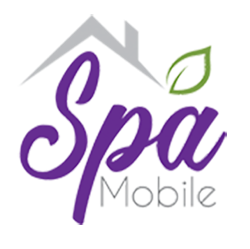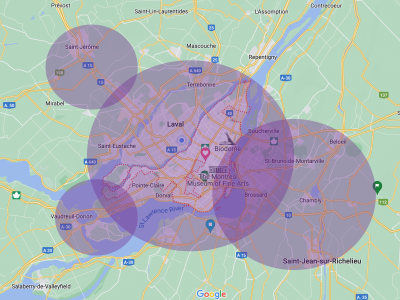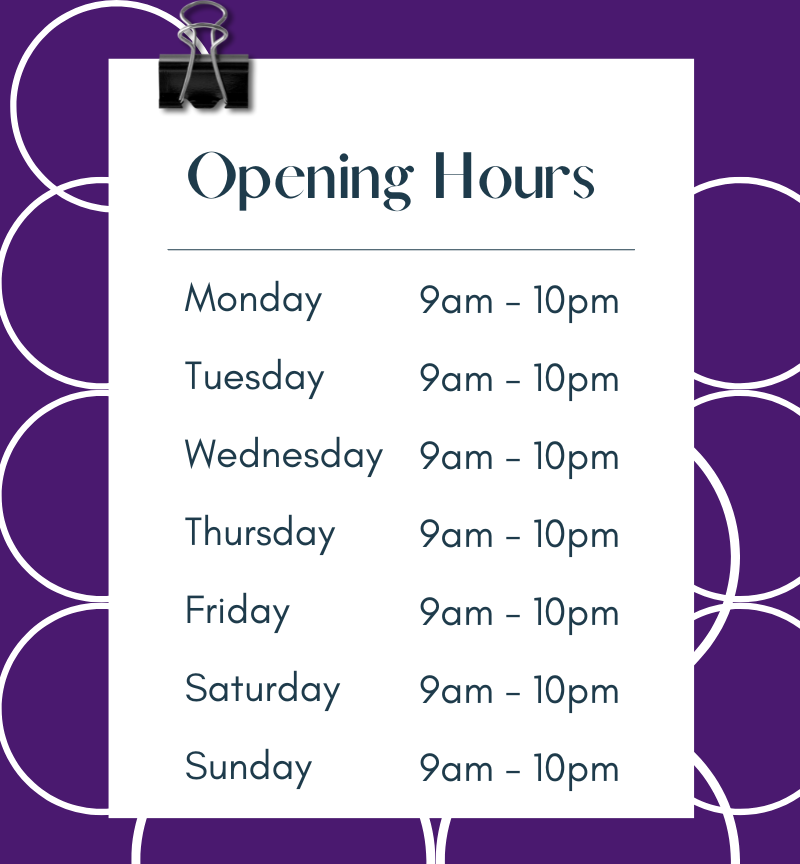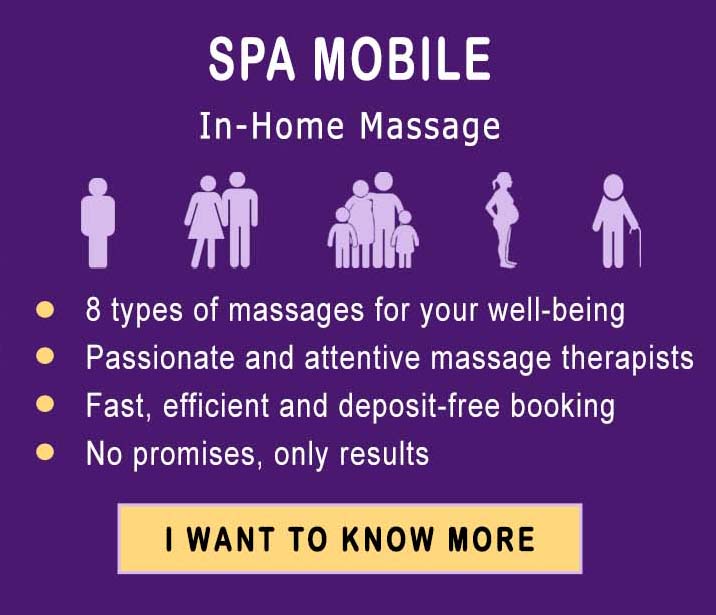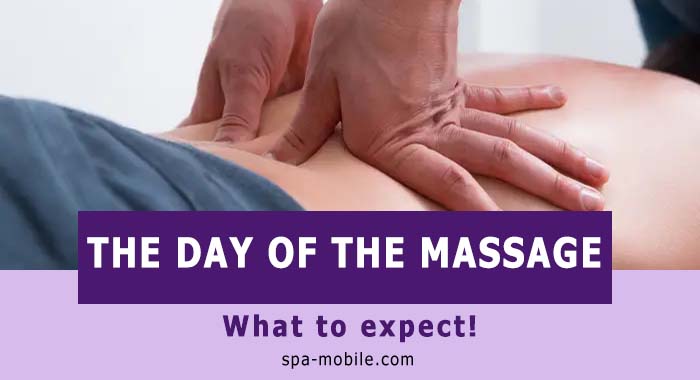Today, many people face different levels of mental health. As mental health problems become more common, people are searching for more treatment options, such as in-home massage therapy. Feelings of anxiety and sadness are the most common situations that can be treated through in-home massage treatment. In-home massage gives relaxation and stress relief to the body. Also, it can be an effective tool that can fit into a treatment plan for mental health problems.
The connection between physical and mental health is well-known and well-researched. After all, it isn’t easy to get one without the other. Depression and stress can have a significant impact on both aspects of our well-being. There is no lack of finding areas that produce stress in our everyday daily lives: office, relationships, economic stress, and so on. Finding healthy treatments for anxiety can help us deal with both physical and mental issues. As we all know, in-home massage suits many physical problems. Science also shows that regular massage significantly affects our mental health. Scheduling a regular in-home massage into your mouth can help change your body, mind, and productivity.
Massage for mental health:
As we all know, mental health is a person’s mind. It is connected with psychological and emotional health. Mental health issues can vary from the worries of everyday life to serious long-term problems. It can be divided into two groups called “neuro” ic” or “such” tic.” Neu “otic mental health includes severe symptoms of “normal” emotions such as anxiety, depression, or panic.

In this condition, anxiety and depression are common problems that can be severe and long-lasting and hurt people. Another less common type of mental health is psychotic behaviour. It can interfere with a person’s perception of reality. Mental health issues can affect the way you feel, think, and behave. In-home massage is an appropriate method to use for mental health in the following circumstances:
Relaxation:
In-home massage can be applied for relaxation purposes. Relaxation can occur in both psychological and physiological forms. Psychological relaxation means a decrease in stress hormone release, such as cortisol. Reducing cortisol levels in the blood will assist the individual in feeling a reduction in stress and depression. On the other hand, physiological relaxation refers to increased tissue elasticity and flexibility. A decrease in musculoskeletal tension can help the individual feel a reduction in pain and improve their range of movement and flexibility.
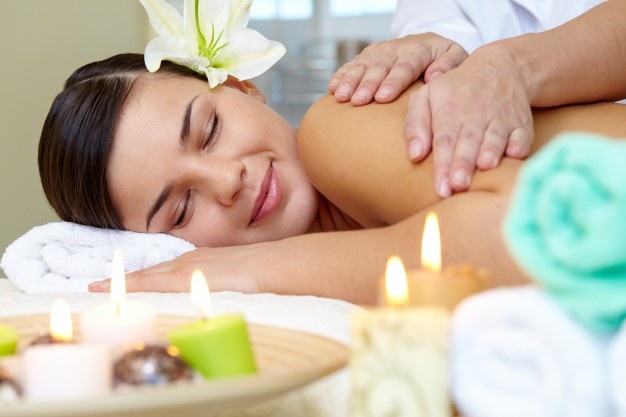
Before a stressful event:
In-home massage can be highly beneficial to a person with mental health issues before a stressful event. These stressful events include a business meeting, interviews, or the first day at a new job. During periods of anxiety and depression, the body enhances the amount of cortisol, a hormone connected with anxiety, stress, and fear. An amount of cortisolcan makee theindividuale attentive and observant during the “fight” light responsee. Very long periods of high cortisol levels can make an individual anxious, stressed and even depressed. In-home massage can limit the production of cortisol, which can help the individual feel relaxed and calm.
Following a stressful event:
In-home massage can also be used following a stressful event, e.g., a project presentation, the first day at a new job, or an exam. In these stressful situations, the body will face a sudden increase in adrenaline, cortisol, and norepinephrine levels,e which are all stress-related hormones involved in the body “or flight”‘ sp” nse. Although these stress hormones can be helpful in stressful situations to become aware and focused in stressful situations, it can be challenging to relax after a stressful event when these hormones are no longer needed. The application of in-home massage can decrease the production of stress hormones.
Massage and your mind
In-home massage is a powerful wellness tool that produces relaxation and decreases tension. But does getting an in-home massage actually affect your mental health? Research that calculates neural activity during and after a massage suggests that in-home massage isn’t. Our brains are very active during in-home massage!
Take a closer look at mental health during massage:
S, what’s your head like during your in-home massage session? The most critical impact of in-home massage on your mental health is your hormone levels. Researchers have recorded increased serotonin and dopamine levels in several massage studies and decreased cortisol levels after an in-home massage session. These hormones are connected to feelings of happiness and tension, respectively. It may be one reason that in-home massage is often used to handle mental health conditions like depression and anxiety disorders.
Checking brain activity during massage showed more exciting findings. In Brian, the right side is more active when stressed, and the left is more active when stressed. When we compare brain connectivity, researchers showed enhanced activity on the left and decreased activity on the right. In simple words, getting an in-home massage can make you happier.
The Mental Health Benefits of Massage:
In-home massage is a very effective way to unwind and relax after a long working day. It’s beneficial for your physical health since it allows the relaxation of muscles and improves circulation. Thanks to in-home massage, you have more considerable flexibility and range of motion,n and you can maintain that if you get massage therapy regularly.
Improved Sleep
Getting plenty of regular sleep is an essential part of any wellness routine. Without it, we are taking risks to a range of physical and mental issues. While the in-home message isn’t intended to send you off to dreamland on the spot, the effects of enhanced blood circulation and relaxed muscles can assist you in sleeping more efficiently – and for longer.
Promote feelings of well-being and connection.
Oxytocin is called the “lov”” or”“udd”” or”horm”ne.” When people meet physically, hug, or bond, oxytocin is produced, enhancing feelings of well-being, ease, and comfort. The professional touch of an in-home massage can get that hormone moving safely and non-offensively as we massage over the clothes.
It helps with emotions related to ongoing illness:
Many people with chronic illnesses feel helpless and aren’t anywhere to move for treatment. It can lead to stress and anger. In-home massage therapy is very beneficial against these symptoms in people with serious illnesses. People who received massages had less anxiety and anger than the control group. However, you should see a medical professional to ensure that in-home massage therapy is ideal for your health issues. For example, those with blood clots should not receive an in-home massage.
Feel Fresh and Energized
We all know that living with any mental illness is very exhausting. It feels difficult to even drag yourself out of bed in the morning, let alone work with a clear mind. Because in-home massage improves circulation, you can feel happier and focused, leaving those feelings of fatigue and lethargy.
Naturally, it Increases Serotonin and Dopamine.
Toda and many antidepressants work by causing low levels of serotonin in the brain (the “h”ppy” “ear” t”transmitter.) Scientists have shown that in-home massage can increase serotonin and dopamine by about 20 percent, giving us a natural mood boost.
Calm Your Mind
Taking an in-home massage, even for 25 minutes, can help reset your brain and let you take deep breaths. This opportunity to step away from your desk can give you perspective so you return to work with an energized mind and body.
Relaxed state:
In-home massage allows the individual to experience a relaxed state both physically and psychologically. Physical relaxation can be achieved by decreasing muscular tension and increasing tissue temperature. Another relaxation is obtained through moderate to deep massage strokes, activating the soft tissue and decreasing adhesive connections between the muscular fibres. Using such techniques increases vasodilatation, which refers to widening blood vessels. In-home massage increases the tissues’ muscle mass due to enhanced blood circulation.
Physiological effects of in-home massage:
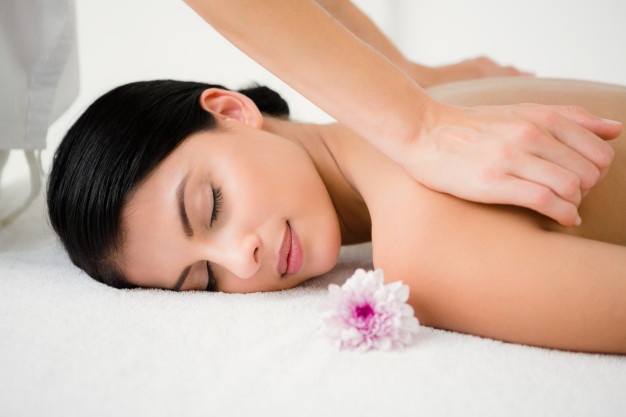
In-home massage for mental health
The application in the home of massage can produce several physiological effects, such as;
- Increased endorphins serotonin and dopamine
- Decreased cortisol
- Increased temperature
In-home massage can enhance the release of endorphins such as serotonin and dopamine. Endorphins are produced during times of happiness and relaxation. Low amounts of endorphins are typical among people facing mental health problems due to the stress associated. These low levels are linked to negative thoughts, anxiety, stress, and depression. In-home Massage can increase the release of endorphins with the help of the autonomic nervous system. An increase in serotonin and dopamine levels can make the individual feel enthusiastic and relaxed.
In-home massage can decrease the release of cortisol. It is a stress-related hormone released during times of danger. High levels of cortisol are connected to feelings of stress and depression. In-home massage can decrease the production of cortisol by promoting relaxation. A decrease in the levels of cortisol can leave the individual feeling relaxed and happy.
In-home massage can enhance tissue temperature. It is achieved by stimulating an increase in blood flow, which is obtained through vasodilatation. Due to the increase in blood circulation, it can warm the tissues, making them more relaxed. It can also lead to an increase in tissue elasticity and decreased pain.
Does technique matter?
Some people need an in-home massage in the morning to get their day going, while others need it to fall asleep at night. Some people get energy from in-home massage, and the same activity causes individuals to fall asleep. The type of in-home massage you receive can alter its effect. Like a Swedish massage, a slower massage with rhythmic strokes decreases epinephrine levels and produces a soothing, calming effect. This great relaxation is ideal for facilitating peaceful sleep! Other massage techniques, like deep tissue or sports massage, can boost your energy. This massage gets deeper into the muscle, producing blood circulation and lymphatic drainage.
A longer in-home massage doesn’t have more impact. Researchers measured patients before and after a massage and changed the length of the massage. The result showed that while all the massages decreased stress levels, the massage session had a more significant effect. Both the 20-minute and 30-minute massage has similar stress-decreasing effects. Next time you’re angry, try a quick 10-minute in-home massage.
Getting an in-home massage used to be considered a luxury indulgence, but the science is precise. In-home massage has natural advantages that enhance overall mental health. Based on all the studies above, it’s not uncommon for many people to add in-home massage as part of a regular fitness routine. You should try our in-home Soothe massage and see if you feel a change in your mental state and feelings after the massage session. Book your time, and let us know how it goes!
